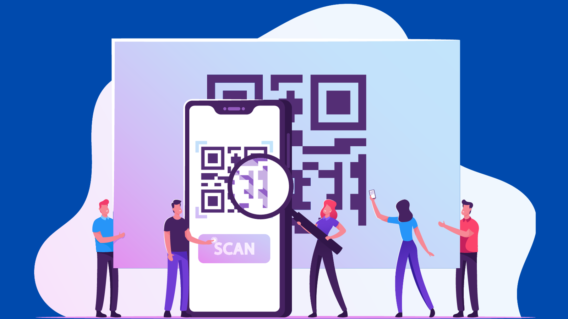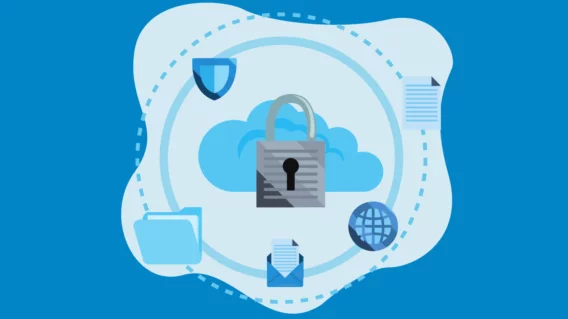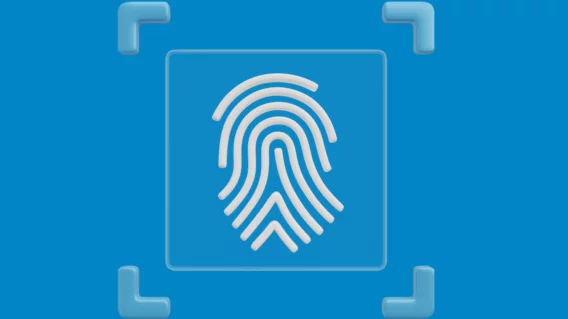Keeping your kids safe online? Follow these 5 tips

It’s a nightmare come true – your children are sitting at the dinner table or lying around in the living room, vulnerable to unknown threats. It should be family time, yet instead of engaging in a family conversation they stare at their screens. Your mind spins as you wonder, what in the world are my children looking at? Are they downloading explicit content, or planning to meet with sexual predators?
Your home is the one place your children should feel most safe, however the internet means they are exposed at any time to any one.
What you don’t know can hurt your child
Your children are glued to the screen at all kinds of odd hours, and you’re completely unsure of what they’re up to. It can drive you crazy just trying to imagine what’s reaching them through that blue light.
 It’s hard to understand why young people are so completely obsessed with the Internet – but for them it’s much more than a useful tool. It’s where they socialize, learn, play, and express themselves. For many of these digital natives, the Internet is where a large portion of their lives will play out.
It’s hard to understand why young people are so completely obsessed with the Internet – but for them it’s much more than a useful tool. It’s where they socialize, learn, play, and express themselves. For many of these digital natives, the Internet is where a large portion of their lives will play out.
While it’s important to give children the space to grow and explore, it’s also important to cultivate awareness of the following threats to their safety:
Malware and privacy threats
Kids and teens love torrenting and file sharing. Often their peers will tell them about all the latest games, movies, and music that they just must have. Kids might know how to acquire all of this media, but they also might be downloading malware along with it as they need to find increasingly obscure and dubious sites.
They are also often unaware that they are being monitored by their Internet Service Provider as part of a crackdown on piracy. While they might not care about their privacy now, a bad choice now could be something that could haunt them in the years to come.
Video game addiction
If your children are gamers, you’re probably used to strange shouting and compulsive clicking coming from their rooms. It may be hard to believe, but those silly online games could actually rule (and ruin) your children’s life – people have even died from their inability to put the controller down.
Video game addiction is a real and serious problem. Like addictions to drugs and alcohol, video game addiction can get in the way of a person’s ability to live a normal and meaningful life. It can lead to obesity, hallucinations, irritability, and depression. It may seem like your kids’ preference for video games over socializing and school is not so out of the ordinary, but if your children are spending upwards of five hours a day gaming, it can negatively affect them on much deeper levels.
Even video console manufacturers are increasingly aware of the importance of limiting and checking on kids’ online gaming habits. Nintendo’s upcoming Switch console comes with a dedicated app for parents to regulate and check what and how long kids are playing.
Predators on social media
It’s easy to see then why kids love social media so much – they can instantly connect with their peers, and collect “likes” and “upvotes” for their thoughts and pictures. Unfortunately, a predator can also leverage these same social media features to lure in your pride and joy.

“OMG cat” (source: mashable.com)
They can even create convincing fake profiles to trick your kids, as Youtuber Coby Persin shows in his social media experiment in this video, where he convinces young girls (with the permission of their parents) to meet him in person with a fake Facebook profile. While this hoax was roused to teach the teens a lesson, it’s heartbreaking to realize how easily they could have fallen victim to a real predator.
Illegal activities and pornography
Unfortunately, when kids have questions they have the Internet at their fingertips. 93% of boys and 62% of girls have been exposed to pornography before the age of 18. This could influence them to be promiscuous at a young age, or even share nude pictures or sexually-charged messages online.
And if that isn’t scary enough, thanks to the growing black market on the darknet, kids can now buy drugs online. Drug trafficking on the internet is very convenient for people who otherwise might not have those kind of connections. Even if your children aren’t surfing the underbelly of the internet, they can easily learn about drugs, how to use them, and where to acquire them by conducting a quick Google search.
Cyber-bullying
While there is no single factor that puts a child at risk of being bullied or bullying others, online bullying is a growing concern. Bullying can happen anywhere—cities, suburbs, or rural towns. In the past, children who were bullied at school we able to find respite at home. However, now, children are accessible 24 hours a day via their instagram posts, facebook pages, instant messaging apps and texting.
Signs your child may be being bullied include:
- Sadness
- Anxiety
- Depression or other more serious mental health problems
- Anger
- Shame
- Fear
- Frustration
- Low self esteem
- Inability to trust in others
If left unmanaged these feelings can lead to a drop in grades, the withdrawal from social activities your child used to enjoy, an unwillingness to attend school and in extreme cases, suicide.
Hurt and humiliation that could once be managed on a small scale is now broadcast to bigger and bigger audiences through the use of instant messaging services, youtube and websites. As was the case for Ryan Patrick Halligan who took his own life at 13 after being bullied for months online without his parents awareness. His case is only one of many.
How to stop cyber threats in their tracks
 With all of the risks and dangers out there, it can be tempting to ban your children from Internet access entirely. You did have other things on your mind than the Internet when you were a child, and you turned out okay, right? Why can’t they just use encyclopedias when they have to look something up? What’s so bad about using the phone to call up their friends?
With all of the risks and dangers out there, it can be tempting to ban your children from Internet access entirely. You did have other things on your mind than the Internet when you were a child, and you turned out okay, right? Why can’t they just use encyclopedias when they have to look something up? What’s so bad about using the phone to call up their friends?
Unfortunately, this kind of paranoia will not prepare them for their technology-driven future, where they’ll have to conduct themselves as adults daily. Luckily, you don’t have to keep the keyboard under lock and key to ensure the safety of your children.
Here are the top 5 ways to keep your kids safe from Internet threats:
1. Start a conversation with your child
It’s important to have an open dialogue about risks online with your kids. Bring up the conversation in relevant ways, tying in the topic to current events or TV specials. Try to get your children to express their opinions, that way you can start an ongoing dialogue about Internet safety.
Talk to your kids about other topics too. If they feel a strong social bond with you, they may turn to the computer less to cure their boredom or loneliness. Having an open line of communication can inspire your children to approach you for advice and guidance.
2. Create rules and guidelines
If your children are old enough, you do not want to have to control every little thing they do. After all, you don’t spend all day at school with them dictating their choices. But similar to limiting what toys you buy them, you can create boundaries surrounding new software and video game downloads. Question their motives when they ask to download:
- File-sharing software
- Torrenting software
- Anonymous browsers
- Films or music that have yet to be released
This suggests they may be interested in doing something illegal or risky. Additionally, set Internet use and video gaming limits if you feel that your kids spend too much time online. Create rules surrounding social media, and how much of their personal information they are allowed to share on it.
3. Monitor your child online
Young children should never be on the Internet without adult supervision. Use these tips when sitting down with your child to explore the web:
- Set all search engines to safesearch. You can even do this on sites such as Youtube, which is a favorite among kids. Scroll down to the bottom of the page and click the safety box.
- Limit the apps and media on your phone and tablet. If your children use your devices, only have what you wouldn’t mind your child accidentally coming across. If you have a Windows phone, the Kid’s Corner feature can help you limit access to certain content on your device (and prevent your little sweetheart from deleting all of your vacation photos). Just go to Settings under App list to set it up.
- Consider purchasing a child-friendly tablet. These often come with pre-installed parental controls and settings, and some even allow you to restrict access to entertainment apps so that you can get your children to focus on education.
- If your kids use a Windows 10 device, take advantage of the family features which allow you to set time and access limits. Your children will need Microsoft accounts, so be sure to familiarize yourself with the ways you can optimize privacy settings on Windows 10.

When your kids grow older, it may be wise to let this ritual go and give them your trust unless they abuse it, since most teenagers will know how to clear browser histories anyway. Cyber safety educator Leonie Smith recommends that you perform spot checks for young teens, meaning that you check in with their computer and phone use randomly. However, these checks should not be conducted in secret – you should be very clear with your children on your monitoring practices to preserve trust.
4. Use the right tools
The right tools are integral to making sure that your children don’t download a harmful trojan in the event that they do come across an untrustworthy site. Investing in a quality anti-malware solution can prevent nasty, system-compromising infections.
Additionally, there are parental control softwares that can help you monitor your children’s activities. These applications range from blocking inappropriate websites to sending you reports on your little one’s computing habits. While it may be worthwhile to consider investing in these tools, relying on them exclusively could prove to be ineffective. Kids learn how to bypass these systems, especially if they are browser add-ons.
Some trusted parental control tools include:
A simple software that focuses primarily on blocking inappropriate websites and ads. It has a “timeout” feature that can be activated if K9 had to block too many sites in a set period of time.
Looking to protect your children while they’re on your tablet or phone? Zoodles Kids Mode is an app that limits your children’s surfing to a curated assortment of games, educational content, and videos. It’s a good option for those times when you can’t monitor your kids as carefully as you would like.
A comprehensive, cross-device software for those who want to receive more detailed reports about what their kids are doing. Qustodio allows you to set up separate accounts, making it a good choice for those with multiple children with different safety needs.
5. Know the signs of addiction
If your children act out when you ask them to turn off the computer and they seem withdrawn from other activities, the computer may be a problem. Know the signs of addiction, and look out for things like:
- Irritability
- Dishonesty

- Secretive behavior
- Isolation
- Back pain
- Strained vision
- Anxiety
- Poor academic performance
If you’re concerned that your children may be suffering from video game or computer addiction, seek professional help for a proper evaluation.
With all of the risks and dangers out there, it can be tempting to ban your kids from Internet access entirely. Unfortunately, this will not prepare them for the online world when they are adults. Addressing the issue of online safety now will help them develop the digital smarts they need to excel in an increasingly technology-driven world – all while keeping them out of harm’s way.
Don’t forget, it’s good to log off the web as a family every now and again. Teach your kids the value of the great outdoors and real-life human contact – they might even update their status about it later!
What do you do to protect your young ones online? Do you have any tips for other parents? We’d love to hear them!
Emsisoft Enterprise Security + EDR
Robust and proven endpoint security solution for organizations of all sizes. Start free trialHave a great, safety-conscious day!


